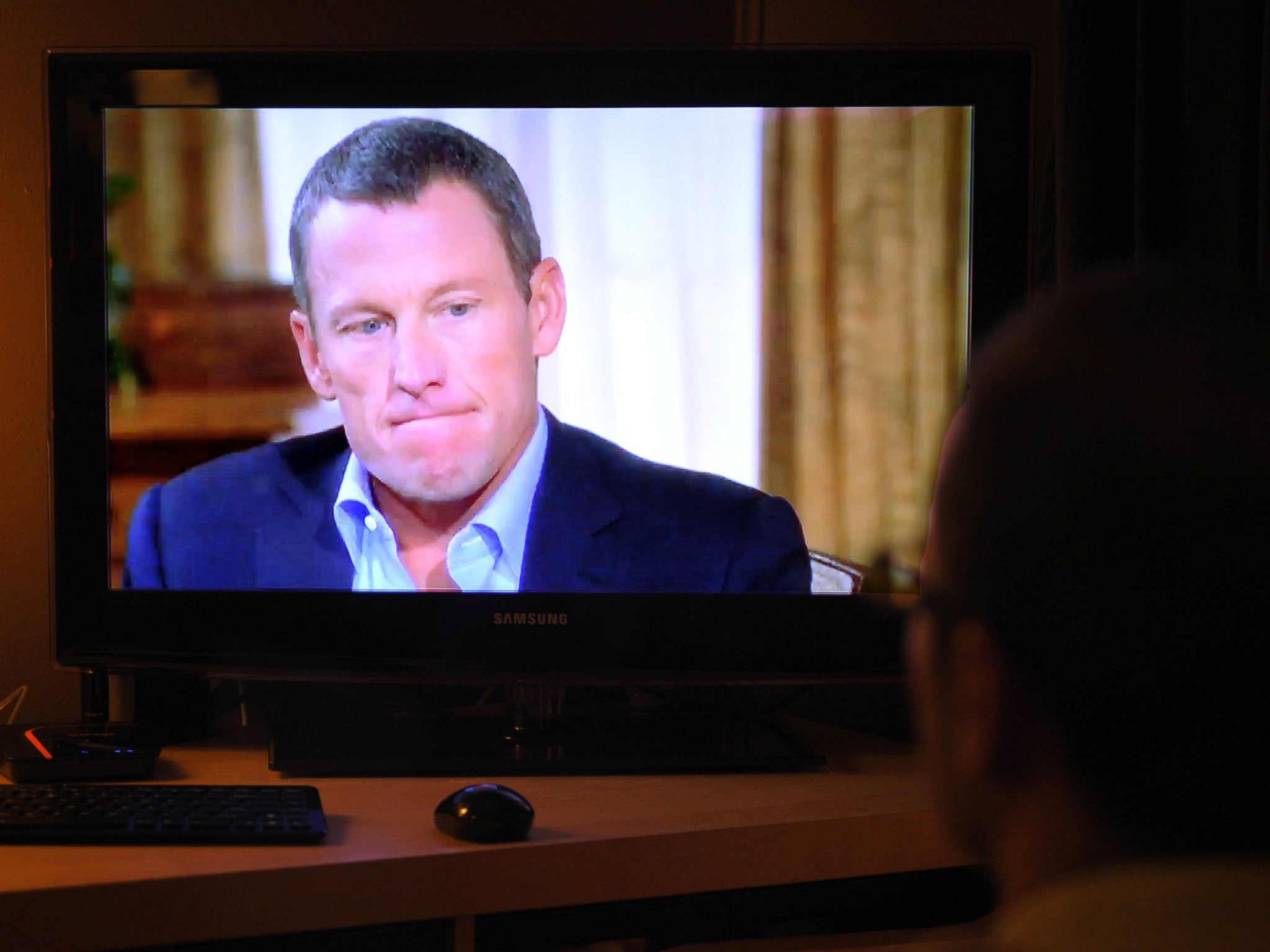Lance Armstrong point by point: what he told Oprah Winfrey

That’s it, he’s done it. After more than 15 years of lying or “defending his territory” Lance Armstrong has admitted to having doped throughout his record run of seven Tour de France victories. That fact alone, the “yes” he offered in response to Oprah Winfrey’s questions at the top of first, 90-minute instalment of the Armstrong interview, is huge. But how well it go down?
I was never a huge Armstrong fan. I never bought the bracelet but I bought the myth. As a teenager with what would become a deep love of cycling, this guy was awe-inspiring in his dominance of such a tough sport. Over the past couple of years, since it has been clear to all but his staunchest defenders that Armstrong was not only a cheat but also the worst kind of liar - a bullying liar - awe has turned to anger. The guy’s a bastard.
And now? First, the stuff he said this morning:
* He doped. He didn’t invent the culture but he didn’t try to stop the culture.
* The doping program was not the most sophisticated ever (he singles out East Germany).
* He justified taking testosterone because of his history of testicular cancer.
* He wasn’t afraid of getting caught because testing was limited.
* He never ordered a teammate to dope. “We were all grown men”.
* He was a bully and a fighter who defended his territory.
* Doping was akin to putting air in the tyres or water in the bottles.
* Michele Ferarri, doping doctor, is still a good and smart man.
* He was reckless and “a jerk” and “deeply flawed” and “an arrogant prick.”
* There was more happiness in preparation than winning. “The winning was almost phoned in.”
* Doping didn’t feel wrong, he didn’t feel bad about it, he didn’t feel it was cheating.
* People have every right to feel betrayed. “I will spend the rest of my life earning back trust and apologising.”
* Emma O’Reilly, a whistleblower, is “one of those people who got run over, who got bullied.”
* He has apologised to Betsy Andreu, another whistleblower he bullied. “I was just on the attack.”
* He regrets his comeback in 2009. “I wouldn’t be sitting here if I didn’t come back.”
* When the Justice Department dropped its investigation, he thought he was “out of the woods.”
* He wishes he had chosen not to fight Usada when it took up the investigation.
* His “fate was sealed” when teammate George Hincapie talked. They are “still great friends”.
* He “loves cycling” and “if there were a truth and reconciliation commission... I’ll be the first man in the door.”
Beyond that initial admission of doping, the above summary looks like a bit like a series of excuses and justifications. He was more “deeply flawed” than he was “sorry”. A survivor from a broken home defending his territory. And all of it delivered with slightly chilling clam. Armstrong was composed throughout, his eyes dry (a first for Oprah?). He was slightly less of a jerk than the man we’ve seen before, but seemed less contrite than some of the words coming out of his mouth.
And then there were the things he didn’t say, the holds he barred despite Oprah’s promise. He refused to be drawn when asked about Betsy Andreu’s accusation that he admitted doping while being treated for cancer in hospital in 1996. “I’m gonna put that one down,” he said. He refused to implicate anyone else, and was unforthcoming about the role of the UCI, which he denied attempting to bribe (he said he had given the governing body a donation because it “asked him to.”)
The trail for tonight’s concluding part of the interview promised the fallout of his lies and its effect on his mother, foundation, sponsors and “the people wearing the bracelets.” There was a possible preview of some actual tears when Oprah raises the question of his 13-year-old son. She’ll also ask him, what next?
I’ll wait for part two but I feel oddly unmoved by Armstrong’s admissions, however stark and momentous that first “yes” was. He has a lot more to do to demonstrate his guilt and to explain where he’s going to take it. More than that, how are we supposed to believe anything he says anyway. As Armstrong himself told Oprah, “I’m not the most believable guy in the world right now.”
Join our commenting forum
Join thought-provoking conversations, follow other Independent readers and see their replies
Comments
Bookmark popover
Removed from bookmarks